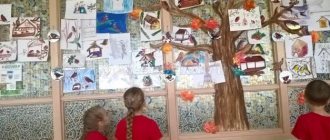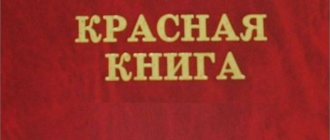Intellectual game “Clever and smart girls” with presentation, 3rd grade
Intellectual game “Clever and Clever Girls” for 3rd grade students
Author: Pukhova Natalya Vladimirovna, primary school teacher at MBU Secondary School No. 86, Togliatti, Samara Region Goal: to develop mental operations, curiosity and outlook in primary school students. Objectives: — strengthen students’ computing skills; — develop logical operations; — to develop in students the ability to work in a team and provide mutual assistance. Planned results: Personal UUD: - establish a connection between the goal of educational activity and its motive; - determine common rules of behavior for everyone; — determine the rules of work in the group; Regulatory UUD: - work according to the proposed plan, instructions; - express your assumptions based on the educational material; - exercise self-control; - together with the teacher and classmates, evaluate your activities in class. Cognitive UUD: - navigate your knowledge system (determine the boundaries of knowledge/ignorance); - find answers to questions using your life experience; - be able to determine the level of mastery of educational material. Communicative UUD: - listen and understand the speech of others; - be able to express your thoughts with sufficient completeness and accuracy; - master the dialogical form of speech. Description of work: at the beginning of the game, the teacher asks students to split into 3 teams. Students collectively choose the name of their team, which is written on the board. Each team selects a captain who will write down or announce answers to tasks. If the team shouts, penalty points can be entered. The team that completed the task incorrectly receives 0 points. Tasks must be shown on the interactive board. Progress of the game Teacher: Guys, I offer you tasks that are used in Japan when students enter first grade. Task No. 1 (1 minute is allotted for the task). Each team writes down their answer on a piece of paper. After the time is up, the captains come to the board and show their answers.
Correct answer: left Teacher: The team whose answer is correct receives 1 point. We write it in the table. Task No. 2 (1 minute is allotted for the task). Each team writes down their answer on a piece of paper. After the time is up, the captains come to the board and show their answers. Slide 2. What number is hidden under the parking space?
Answer: 87 Teacher: The team whose answer is correct receives 1 point. We write it in the table. Task No. 3 Find the number (3 minutes are allotted for the task). Each team writes down their answer on a piece of paper. After the time is up, the captains come to the board and show their answers. Slide 3.
Correct answer: 2 Teacher: Teams whose answer is correct receive 2 points. We write it in the table. Next, I offer you logical tasks from Russia. Task No. 4 (1 minute is allotted for the task). Each team writes down their answer on a piece of paper. After the time is up, the captains come to the board and show their answers. Vasya’s father’s name is Ivan Nikolaevich, and his grandfather’s name is Semyon Petrovich. What is Vasya’s mother’s middle name? a) Ivanovna; b) Nikolaevna; c) Petrovna; d) Semenovna; e) Cannot be determined. Correct answer: Semyonovna Teacher: The team whose correct answer receives 1 point. We write it in the table. Task No. 5 Teacher: for the next task, the team whose answer is correct receives 2 points. Between the numbers 3 3 3 3 3 you need to place signs and brackets so that you get 198. Slide 4. And between 1 2 3 4 5 to get 100. Correct answer: 1) (3*3 - 3)*33=198 - out of five threes! 2) 1*(2+3)*4*5=100, but it can be done differently. Think about it. Teacher: The team whose answer is correct receives 1 point. We write it in the table. Task No. 6 There are 23 students in the class. There are 17 people taller than Vasya, 13 below Petya. How many people are taller than Vasya, but shorter than Petya, if all the students are of different heights. How to solve? Correct answer:
There are 7 people below Petya and above Vasya. Task No. 7 Teacher: for the following tasks, teams whose answer is correct receive 1 point. 1. Vitya, Sasha and Andrey made a boat, a snake and a stork out of paper. What toy did each boy make if Vitya didn’t make a boat and a kite, and Sasha didn’t make a boat? 2. Znayka, Knopochka and Tube live in houses No. 14, 17, 19. In which house does each person live if Znayka does not live in houses 19 and 17, and Knopochka does not live in house 19? Teacher: Guys, let's see who's ahead of us? What team? So, the following task is worth 2 points. + 1 point for speed of response. Task No. 8 Continue the following sequence of letters: Slide 5. S O N D I F M ... Answer: Letter “A”. Here we use the sequence of the first letters in the names of the months of the year, starting from September: September, October, November, December, January, February, March. Therefore, the next letter will be “A” - April. Teacher: The team whose answer is correct receives 1 point. We write it in the table. Task No. 9 Slide 6. There are 5 gingerbread cookies. Divide them equally among the six children. In this case, you cannot cut any gingerbread into 6 equal parts. Answer: If we cut 3 gingerbread cookies in half, we will get 6 identical pieces. We cut the remaining 2 gingerbreads into 3 identical parts and again get 6 identical parts. Task No. 10 (task is worth 3 points) Eighteen matches form 6 identical squares adjacent to each other. Take 2 matches so that 4 of the same squares remain.
Teacher: Well done, guys! We record the points in the table. Here's another task with matches. Task No. 11 (the task is worth 2 points). If a team shows several methods, the team gets + 1 point.
First way.
From the figure eight we move the lower left match to the middle of the zero. It turns out: 9+3-4=8. Second way. From the number 8 we remove the upper right match and place it on top of the four. As a result, the correct equality is: 6+3-9=0. Third way. In number 4, we turn the horizontal match vertically and move it to the lower left corner of the four. And again the arithmetic expression is correct: 8+3-11=0. Teacher: Let’s summarize the task. We have already completed the following tasks in mathematics lessons. Remember how they need to be solved. For the task the team receives 1 point, for the speed of completion another 1 point Task No. 12 Kostya thought of a number, added 1 to it, subtracted 2, multiplied by 3 and divided by 4. What number did Kostya think of? Answer: 9 Task No. 13 There are 4 balls in a box: white, black and red. There are as many red balls as there are white and black balls together. How many black balls are in the box? Answer: black 1 white 1 red 2 Teacher: Let's count the score. Who is our smartest person at the moment? Whose team? And here is the next task that you may encounter when participating in the Kangaroo competition. For the following tasks, teams receive 3 points. Task No. 14 In apartments No. 1, 2, 3 there lived three kittens: white, black and red. In apartments No. 1 and 2 there lived a non-black kitten. The white kitten lived in apartment No. 1. Which apartment did each kitten live in? Answer: the black one lived in apartment No. 3, the white one lived in apartment No. 2, the red one lived in apartment No. 1. Teacher: Young guys. We will write the results of the task in a table on the board. Task No. 15 Where is Piglet's house? The Rabbit's house is drawn 4 times, and Piglet's house only once. Where is Piglet's house? Answer: Let's select 4 houses for the Rabbit from the five houses shown in the picture.
Let's assume that the rabbit lives in house (E). Then house (D) is the same house, but turned so that the left wall is visible. And the house (C) is the house (E), if you look at it from the entrance. House (B) is not the Rabbit's house, since its right wall has one window, and the right wall from the entrance of the Rabbit's house (look at house (D)) has two windows. But house (A) is the Rabbit's house: this is house (D), if you look at it from the entrance. So, the Rabbit has four houses: (A), (C), (D) and (E), and (B) is Piglet’s house. The correct answer is (B). Teacher: the task is not very simple. Let's record the results of each team in a table. Task No. 16 Who is closer to cheese: a cat or a mouse?
When it rains, the cat sits in the room or in the basement. When the cat is in the room, the mouse sits in its hole, and the cheese is in the refrigerator. If the cheese is on the table and the cat is in the basement, then the mouse is in the room. It's raining now, and the cheese is on the table. Then be sure to: (A) cat in the room; (B) mouse in a hole; (C) a cat in a room or a mouse in a hole; (D) The cat is in the basement and the mouse is in the room. First, let's look for where the cat is sitting on this rainy day. According to the conditions of the problem, it can be in two places: in the room or in the basement. But there cannot be a cat in the room, since the cheese is not in the refrigerator (it is on the table). Therefore, the cat is in the basement. So, we know that the cheese is on the table, and the cat is in the basement. According to the condition, in this case the mouse is in the room. The correct answer is (D). Task No. 17 Teacher: Now we will test your knowledge of the Russian language. I suggest you think of words starting with four consonants. 1 point for each word. There's still a chance to win! Answer: shake, meet, look, etc. Teacher: Now the time has come to sum up the results of our intellectual game “Clever and Clever.” The tasks were not easy, but you all tried and completed them successfully. Let's count the points. We will reward the winners and participants of the game. Thanks for the interesting lesson!
Presentation on the topic: Intellectual game “Clever and smart girls”
We recommend watching:
Games for children's disco Games for spectators during school-wide events in elementary schools Intellectual game for younger schoolchildren with a presentation on the topic: Animals Games for grades 1-2 on the topic: Animals and plants
Similar articles:
Intellectual games for primary schoolchildren
Quiz "Battleship" for younger students
Educational quizzes for primary schoolchildren with answers
Intellectually - a creative quiz for children of primary school age
Games for children in winter


